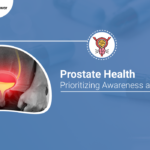Kidneys are categorized as the most essential organ of human beings. Although they may seem like ordinary bean-shaped, tiny organs but kidneys happen to be highly multitasking systems. They perform the functions such as relieving the blood from excess water and waste, maintaining electrolyte balance in the body, regulating blood pressure, etc. These are the most fundamental functions of humans to stay alive. Any disruption in kidney function can lead to lethal conditions as loss of kidney function is a downward spiral of conditions getting worse only. This loss of kidney function can be caused by various problems. However, kidney stones happen to be one of the primary causes of kidney failure.
Table of Contents
What are these stones doing in the kidney?
It is not a common misconception these days that there are no actual pieces of stones in the kidney but these stones refer to the solidified forms of salts and minerals of the kidney which cluster together due to crystallization. The location and size of these stones can impact the symptoms and complications of this condition. For example, some stones are small and are easily passed through the urine while some stones are big enough to cause blockage leading to serious kidney damage. Depending upon the type and location of the stones, treatments vary hugely.
Is there a way to categorize different kidney stones?
- In some patients, a chronic kidney infection can lead to the amalgamation of magnesium and ammonia to form struvite kidney stones
- Most common stones are formed by calcium crystallization. These kidney stones are usually formed when calcium and oxalates cluster together to form a solidified stone.
- Due to excessive nucleic acid in the body uric acid production can become too high to form edgy crystals
- In some rare cases, patients develop kidney stones due to heredity. The nature of these types of stones in the kidneys happens to be more solid and crystal-like.
What causes of kidney stones?
Urine contains compounds consisting of calcium, sodium, potassium, oxalate, uric acid, and phosphate. The levels of these particles along with the acidity and basicity of the urine should be maintained. This is because if any of these two conditions gets disrupted, the particles can clump together and crystallize. Due to the lack of attention to this crystal formation, these clustered particles gather more and more particles and grow in size gradually over some period of time to form a stone that is eventually detectable.
What are some of the important symptoms of kidney stones?
Kidney stones signs and symptoms comprise of:
- Acute flank pain radiating to the back or toward the groin
- Fever associated with other symptoms due to inflammation
- Nausea and vomiting
- The urgency to urinate frequently than normal
- Hematuria is characterized by the presence of blood in the urine
- Unusual obesity
- UTI
Who are at risk of developing kidney stones?
Some of the risk factors of kidney stones are:
- A diet containing high protein amounts and salt
- Obesity
- Male Caucasian
- Remaining dehydrated for longer periods
- Intake of medications such as; antacids, carbonic anhydride inhibitors, sodium and calcium
- Family history of the issue
How are kidney stones diagnosed?
Investigation methods for suspected renal stones include:
- Full blood count test
- CRP
- Magnesium calcium phosphate levels test
- Urinalysis
- 24-hour urine calcium phosphate and oxalate level
- X-ray
- Ultrasound
What are the treatment options for kidney stones?
Most kidney stones are small (< 0.5 cm) and pass through urine spontaneously without any intervention. However, if intervention is required, it is either done through surgical methods either invasive or non-invasively. Surgical management of kidney stones depends upon the size and location if kidney stones. Some of the common treatment options for renal calculi are:
Active management of the symptoms
Some of the options for the treatment of symptoms of kidney stones are:
- In an acute management of renal calculi, analgesia is given to the patient to prevent vomiting
- IV fluid administration
- Percutaneous Nephrostomy: This procedure allows the placement of a small flexible rubber tube or catheter through the skin into the kidney in order to drain urine. This method is done when there is an obstruction in the urine flow due to stones. This is also a kind of symptomatic relief
Ureteric stent
If the stone is lodged within the ureter, a stent is fit up through the urethra and bladder up the ureter to the site of obstruction. The stent acts as a bypass to the blockage and allows the draining of the urine
Percutaneous Nephrolithotomy
This surgical procedure is done when the stone is located inside the kidney. The aim of this procedure is to remove the stone from the kidney by a small puncture wound through the skin. It is most suitable for patients who contain stones larger than 2 cm and are located around the pelvic region of the kidney
Simple endoscopy
Some stones of the kidney and ureter can be removed by a simple endoscopic procedure that breaks down the stones within the organ they are present.
Extracorporeal shockwave lithotripsy
This procedure involves using shockwaves to breakup stones to enable easy passage of the fragments out of the body through urine
Conclusion
There are many ways your doctor will advise you to avoid kidney stones if you are prone to developing them. Drinking plenty of water to dilute the urine component is one of the most advised ways to prevent kidney stones. Limiting oxalate foods and eating a calcium-rich diet can help to crystallization of oxalate particles in the kidneys. You should just limit the known causes of kidney stones and you are highly likely to not develop them. However, if you do end up with kidney stones, you are not alone as it is one of the most common and treatable conditions in the world. What you just need is a doctor, like Dr. Dushyant Pawar, upon whom you can completely rely. Expertise in diagnosis and experience in treatment execution must be your urologist’s forte if you are finding one to help you with your renal stone problems



